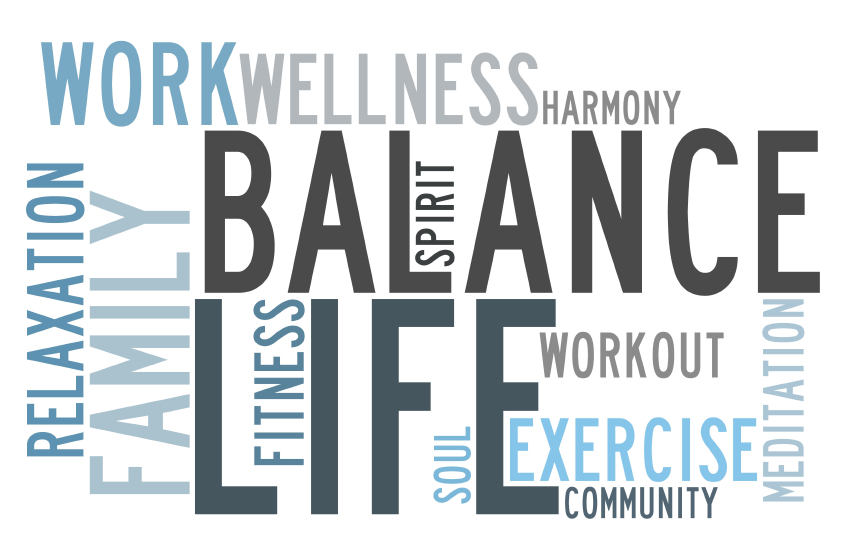

Category: Career Tips
Brighton College Announces New Employability Resource Center
Brighton College is pleased to announce it is now offering employability learning resources for all students who graduate any of our programs, at no cost! This program is geared to take students/learners through four (4) critical steps that enable you to: learn how to leverage your natural talents, access quality employability skills training on over a dozen topics, create an employability portfolio to share with potential employers and mock interviews along with access to hundreds of employability partners/employers. As students enter their final course, they are provided access to these employability learning resources and encouraged to take advantage of them.

“Career Services needs more focus helping people find an entry level job in their career field”- Says Sean Dixon, Director of Student Services for Brighton College. Our goal is to provide resources that are specific to gaining those important employability skills not always taught in the classroom”, Dixon goes on to say. Learning these skills is important to today’s leaders as a recent Business Round table survey of CEOs (June 2017 Work in Progress Report: How CEO’s are helping close America’s skills gap) has identified three major categories of skills lacking in the workforce that include: Fundamental employability skills, including basic math, technical reading, communication, teamwork and problem solving.
Our goal is to provide everything possible to help our students become “employability ready”. You can learn more about these excellent resources and get more information here!
By:
Jeff Coruccini
“Improving Employability Everyday”
CEO
Take our Free Employability Talent Assessment!

Are you maximizing your natural talents? Would you like to learn how this can help you in your quest to gain or improve your employability potential?
Brighton College is pleased to offer eLearningPlanner.com, a free online employability talent assessment that enables you to learn about your natural talents and access to a video based training course, so you can leverage them all the time.
Our goal is to help students and learners gain the employability skills that lead to in-demand jobs and there is nothing more beneficial then learning about yourself, so you can align yourself in a job that provides you with high satisfaction.
So, take three (3) minutes to take our free employability talent assessment and start learning today. Upon completion please, take the course and use the workbook as it is easy to follow and something you can refer to in the future.
Please contact us and let us know if we can help you in your career planning as well.
2017 IT Employability Trend: CompTIA’s A+ Certification Program

In today’s IT world the growing popularity of the CompTIA certification track continues to boom. That is why Brighton College is pleased to offer the most up to date courses covering A+ (exam 901 & 902), Network + and Security + for good reason.
Our goal is to help you acquire employability skills and a perfect starting point is by getting your A+ certification. This article validates that the best Help Desk Certification by far is CompTIA’s and according to SimplyHired, the average salary for a help desk technician in the U.S. is $33,373, capping at around $55,000. Glassdoor reports the national average at $36,000. However, stepping into a help desk management position boosts the salary to about $60,000, which can climb above $90,000 depending on company and location.
Additionally, Computerworld’s recent 10 hottest tech skills for 2017 listed IT Help Desk as the second most popular as 35% of respondents with hiring plans said they will be seeking people with this skill in the next 12 months.
Contact us today for more information on how Brighton College’s CompTIA Certificate program can help improve your employability skills by entering the IT career field and aligns to entry level in-demand jobs
Time Management
The Key to Being Successful in College and Beyond
Time management is one skill that we must all learn to master. This will make school, homework, work responsibilities, and taking care of families so much easier. Prioritizing your time in a more efficient way can decrease your stress and increase your productivity. That sounds pretty great, right? Let’s get started!
- Create a “To-Do” List
- Simply by writing down all the things you need to accomplish can help you organize your thoughts and complete the tasks at hand more efficiently.
- Add a timeline to your list so you can finish the most urgent items first and get to the others later.
- Utilize a Planner
- This is where you can write down upcoming appointments, tests, projects, events, classes, or meetings.
- Use color codes that help you remember important information or dates. For example, write urgent items in a bold color so they cannot be overlooked.
- Plan long term. A month long calendar can help you stay organized and see what upcoming deadlines you have. This allows for further planning and preparation to decrease last-minute stress.
- Identify Helpful Resources
- Are you struggling with an assignment or project? Ask the expert. Contact your instructor or a Brighton Team Member that can clarify your concerns.
- Get a tutor or study with a friend. Sometimes incorporating the ideas of others can help you see problems in a new light. A discussion might be all you need to get the ideas flowing.
- Collaborate and delegate with coworkers, friends, and family that can support you and ease your stress in busy times. Sharing the responsibilities with those around you is a good way to manage your time.
- Create a Dedicated Study or Work Space
- Finding a place free of distraction is crucial. This will allow for full concentration as well as creating structure. These are both important for creating efficient work habits and establishing a routine.
- Have a back-up space that you can go like the library or bookstore. This can provide a change of pace as well as offer you with additional resources.
- Use Your Free Time Wisely
- What are you doing as you drive in the car or walk the dog? How about when you take your children to their weekly activities? Think about how you can restructure that time to get some extra studying in. Bring some flashcards, review new information that you just read and think of how you are going to apply it. Take notes from memory to see what items you need to revisit.
- Turn lull periods in your day into productive and positive ways to manage your time. All it takes is a new way of thinking!
Tips For Creating A Standout Resume
Crafting a standout resume in today’s job market is an absolute must! When applying for a position you are likely competing with dozens if not hundreds of applicants. You must ask yourself, “Why would they choose me?” Give prospective employers every reason to contact you. Showcase your experience, attention to detail, and skills that make an employer eager to know more about you and what you can bring to their team.
- Incorporate keywords and phrases that that make you a standout candidate. Showcase your experience, skills and talents. Buzzwords like “team-player”, “accomplished”, “managed”, “created”, and “initiated” are some great power words to incorporate.
- Adapt your resume to the job you are applying for. You might need to revise your resume multiple times to fit a variety of job positions. Explain why you would make a great contender for the specific position you are applying for. One version of your resume is not going to fit for every position that you apply for.
- Use a modern and professional format. Clear, concise, and easy to read is always the way to go.
- Proofread, proofread, proofread! This is one of the most important components. If you have typos, spelling mistakes, and errors in your resume likely potential employers will toss your resume aside. They are looking for individuals that are careful and thorough with their work. They want those that will represent their business well.
- Use a header. At the top of your resume let prospective employers get to know you. Define who you are and what position you are seeking.
- Keep it professional. Do not include negative information about previous employers. Also, do not include information like your hobbies or interests. That is something that you can discuss with them later. Stick to your career achievements and highlight your strengths and positive talents.
- Include a cover letter. This will showcase your writing skills and really let the employer know why you are interested in the position. Showing the employer that you have done some background research and know about the company you are applying for can make or break your opportunity for an interview. Always go above and beyond.
- Have someone else look over your resume. An extra set of eyes that can help you proofread and edit the information is always a good idea.
If you have any other questions about creating a standout resume or you would like someone to look over what you have feel free to contact Student Services or one of your professors. We are here to help you succeed!
Managing the Work-School-Life Balance
Tips for Managing the Work-School-Life Balance
1. Track your achievements
Don’t minimize your experience. Give yourself the credit you deserve and use your accomplishments as leverage.
2. Put in extra effort
Go above and beyond and your hard work will be noticed and rewarded. This includes efforts for work, school, and personal relationships.
3. Build a network
Learn and grow from the people all around you. Acquaintances, friends, coworkers, and professor. Foster important relationships so you have a good support system. If you don’t know something, ask! If you need help, ask! That’s what networks are for.
4. Be intentional with your time and efforts
Focus on gaining skills and knowledge that push you towards your ultimate goal
5. Communicate
Let those around you know about your goals so they can support and encourage you
6. Create a schedule
Make a schedule that enables you to have a healthy balance between school, work, and family. Prioritize and commit!
7. Set clear expectations
Make your academic priorities clear with your employer, family, and friends. This should provide you with a flexible and supportive community of people that understand your goals.
8. Ask for help
Contact Student Services or your Professor if you need help, have questions, or if you are falling behind. We are here to help!
Career Training and the Skill Gap
The economy has come a long way since its recessional slump in 2008. This is good news. However, there still remain a large sector of workers who find themselves underemployed, in low wage jobs with little room for advancement, or unemployed completely. On top of this, there is a segment of employers across various industries who are unable to find workers who possess the skills to fill their jobs. This problem is known as “the skills gap“, and it’s causing a serious dilemma for both workers and employers. It’s become such an issue that in 2012 the American Society for Training and Development (ASTD) released a report addressing ways in which employers, educational institutions and workers can make changing toward eliminating the problem. Read on to learn more about the ways in which career training can help you to escape the trap of the skills gap. p
Causes of the Skills Gap
The reason the ASTD geared its report on skills gap toward such a broad segment of stakeholders is that there are numerous factors that have led to the issue. Such a wide gap in the skills that are needed and the population of workers who can demonstrate those skills didn’t occur because of just one thing, and it didn’t happen overnight. In order to bridge the gap, employers, educational institutions and workers will need to work together to make change.
Many employment experts believe the main issue at play lies with a mismatch between the types of education our workforce is receiving and the kinds of jobs that are available. It turns out that the areas lacking skilled workers are such things as engineering, science and technology. Our educational programs are primarily sending workers into the world who are academically prepared in subjects like education, humanities and social sciences. Other factors that contribute to the increased widening of the skills gap are a rise in retirement of the baby boomer generation, employers requiring minimum rates of experience, poor on-the-job training and lack of “soft skills” like leadership and communication in applicants.
How You Can Overcome the Skills Gap
While it may seem that the this ever-widening gap is something you cannot change, there are actually some steps that are within your grasp. It is true that the larger systems of education suppliers and employers must take on most of the work needed to make improvements. However, no matter what your current stage in life, you can go out and seek some of the training and the skills you currently lack. Fortunately, there are basic education programs, career training institutions and other such resources that can help you to gain the some of the fundamental skills employers seek.
It’s also important that you take your future into your own hands by researching the kinds of opportunities that are available. Think of some technical, science or computer related jobs you might be interested to pursue. Then read about them online to see which are in need of skills workers and, more specifically, which positions employers are most looking to fill. Your local unemployment agency or career center can sometimes assist you in finding this kind of information. Once you are well-informed, you can begin to come up with a plan for obtaining the education you need in order to qualify for the kinds of jobs you want.
Don’t Forget the Soft Skills
You need to also bear in mind that employers are looking for applicants who can communicate well and get along with a wide variety of people. They want workers who know how to plan a project and follow it through to completion, along with ones that are able to identify problems and be able to use the critical thinking necessary to solve them. You may be surprised at the skills you already possess in these areas, simply based on your life experiences to date. Don’t worry if you think you’re lacking. Soft skills are often picked up naturally while pursuing your educational training.
The looming skills gap doesn’t have to be a deterrent to finding good jobs. With some personal initiative and focused career training, you’ll be well on your way toward a career path that meets your needs.
Contact Brighton College to learn more about the kinds of programs that can get you started on that path. Reach us at (602) 212-0501.
6 Pieces of Career Advice You’ve Never Heard Before
If you’re stuck in a career rut, chances are that you’ve spent hours reading article after article, trying to find the career advice that will make everything click. You can only hear “work hard” and “dress for success” so many times. Here’s some advice that is a little different:
Stop Lying to Yourself
Be honest about what you want. It’s ok if you just want a stable career that pays well. It’s ok if you want to save the world. Stop telling yourself that your reasons aren’t good enough.
Stop Underselling Yourself
Know what you have to offer and offer it. If you’re hunting for a new career, you need to be able to convince employers that you’re worth it.
Stop Overselling Yourself
That’s right- there’s a balance. Stop lying on your resume. Know your value, but never act like you’re more valuable than everyone else. That’s just rude.
Be Indispensable
This is where “work hard” comes in. Be the person at your job that no one knows what they would do without. This means working as hard as possible and being a great coworker.
Never Stop
This isn’t about overtime. This is about always trying to be a better version of yourself. Never stop learning and moving forwards. Create opportunities for yourself.
Stop Hoarding Career Advice
None of this is going to matter at all if you don’t take the time to actually apply it to your life. Focus on the advice you hear and work it into your daily habits.
If you’re ready for excellence, then it’s time to contact Brighton College and train for a reliable career that can satisfy you.
Career Change: Why it’s Ok to Start Over

The world of work has changed a great deal throughout the decades. It was once simply accepted that the “right” thing to do was to enter a job with a company and remain there until retirement. If workers were lucky, they were able to move “up the ladder” into advanced and better-paying positions, but many employees settled into the same duties until retirement. Fortunately, today’s culture accepts career change as the new normal. It’s expected that people will switch job paths for various reasons, from dissatisfaction to better pay. You may be inspired to know that many celebrities took a leap of faith to pursue their dreams by changing careers. However, many of us still hesitate when we think about trying something new. It can be scary to consider leaving the familiar behind in favor of self-fulfillment and growth. Let’s look at some reasons why it’s okay to start again along with advice on how to make a change.
You Have a Lot of Life Left
Let’s face it, working into our later years is usually inevitable. Whether you’re in your 20’s, 30’s, 40’s or beyond, there is still a lot of time left to earn a living. It makes sense to spend that time in ways that are fulfilling to you and that meet your needs. Whether you need to make more money to support your family or want to pursue a career that feeds your soul, taking the leap into a career change may not be as big a risk as you think. It may actually be riskier to remain where you are in your job life.
You Want to Be Healthy and Happy
Stress related to the work environment and money worries can have a tremendous impact on your health, leading to conditions such as ulcers, high blood pressure, anxiety or depression. You spend at least eight hours a day, seven days a week at a full-time job. That’s a big portion of your waking life. Not only is the stress, worry and dissatisfaction affecting you during that time, most of us carry these effects with us into our personal lives. The results can cost you a heavy toll.
You Need to Use Your Talents
Working in a job that doesn’t enrich us or allow us to utilize our skills in a meaningful way is stifling. Your career is a big part of your identity. Being unhappy in your work life can have a big impact on your overall sense of self-worth and confidence. On the other hand, pursuing a vocation that allows you to use your talents, make decisions, pursue your interests and engage in ways that fit your preferred work style can improve your life in ways you may not have considered. When our work reflects our values and allows us to feel a sense of purpose, that satisfaction follows us into our relationships and our personal pursuits.
You Don’t Have to Spend a lot of Money or Time
Starting over doesn’t have to mean making a complete overhaul that requires four to six years of formal education and thousands of dollars in student loan debt. Thinking in those terms really can make your dreams seems daunting. Fortunately, there are a number of careers in fields such as health, law, Information Technology and Business that can be attained through a short, flexible program. Many of today’s programs focus on accommodating working adults by offering online courses and staff who can help you by phone or computer. Taking on an education program will inevitably require some lifestyle changes. These changes are manageable, and the rewards are worth the sacrifice.
You Can Plan Accordingly for a Career Change
It’s also important to know that you can take some time to plan and research before deciding on your new path. Not only is doing so advisable, it can be really fun and empowering. When you have so many work,family and other obligations in your life, making a change to enhance your life can be exciting. Sit down and brainstorm the kinds of jobs that interest you and the talents you possess. This will give you a starting point at discovering the kinds of pursuits that might best fit your personality and aptitudes. You’ll also want to narrow down the kinds of jobs available in your fields of interest and the geographic areas in which these jobs are plentiful.
Getting in touch with a Brighton College representative can help you to get started on getting answers to these questions and pursuing that career change you’ve always wanted.
Why do People Stay in Terrible Jobs?
Although workers change jobs more frequently today than in generations past, it can be quite nerve wracking to think about losing steady employment or to consider looking for a different job. Even if you hate your current line of work, are underemployed or find yourself in a negative office atmosphere, you may still come up with reasons why it’s better to remain where you are than to risk leaving. Job dissatisfaction is not a new occurrence, nor is it an uncommon one. There are numerous reasons why people stay in terrible jobs. Let’s take a look at some of the more common ones and ways you may be able to approach them differently.
Hope That Things Will Get Better
Frequently, we convince ourselves to remain in an unsatisfying, or even harmful, work situation in the hopes that something will happen to change or improve our situation. Having hope is a good thing, but unrealistic hope usually is not. The chances that your horrible boss will suddenly be transferred out of state or that your boring position will somehow become stimulating and challenging are slim. Instead of just hoping that things will improve, it’s best to look for proactive ways to change your personal situation. Perhaps you could volunteer for a new committee if you’re feeling stagnant in your position or you could request a transfer to a different department in which the supervisor is more in line with your work philosophies.
Fear That Quitting Looks Bad
While it’s true that constant job hopping can trigger red flags to potential employers, changing positions occasionally is actually expected in today’s workforce. There is no magic number in terms of how long you should stay on the job before moving on. However, if you’ve given it a fair chance and tried to make adjustments, chances are good that you can safely look elsewhere. Besides, continuing to work at a job you hate will likely decrease your morale and confidence, making it even harder to get out there and look for something better.
Worry About Loss of Health Insurance
Yes, having health insurance is a benefit that is often worth a bit of sacrifice. If your job were mostly pleasant and only stressful on occasion, it would make sense to chalk things up to breaking even. But if your job is causing you so much stress or emotional upheaval that your health suffers, it would seem rather ironic to remain. The health risks associated with job stress are real, and they are an important factor to bear in mind. Take time to weigh the pros and cons related to your current situation, and remember that the Affordable Care Act may provide you with options when it comes to obtaining decent insurance at a fair price.
Dependence on a Certain Lifestyle
Sometimes the reason people stay in a job they hate is simply because they have become dependent upon the lifestyle that particular job’s salary has afforded them. They say money isn’t everything, but talk is cheap when it comes to the idea of leaving your comfortable lifestyle. Again, this is a situation in which you must take a look at the pros and the cons. What possibilities await you if you take the risk of leaving? If there is a good chance you’ll be happier in a different position and still be able to maintain the necessities in life, it may be worth the economic sacrifice to take that leap. On the other hand, jumping without a plan could be quite damaging. It’s okay to take the time needed to assess your situation and to plan accordingly.
Lack of Self-Confidence
Low self-esteem is one of the biggest reasons many people stay in terrible jobs. It’s easy to fall into a rut. Perhaps negative co-workers or overbearing family members have even convinced you as much. This is where some tough self-talk needs to come into play. It’s time to consider the harsh reality of remaining where you are out of fear. Think about what life will be like and the kinds of things you may be missing if you allow your self-doubt to prevail. Another way to reframe your thinking is to recall past successes and the steps you took to achieve them. Doing so can remind you of your capabilities.
If you’re feeling stuck in a job you hate, there are options. Feel free to fill up our contact form or call us at 1-800-354-1254 and a Brighton College representative to learn about our programs and the steps you can take to enroll on a new career path.




